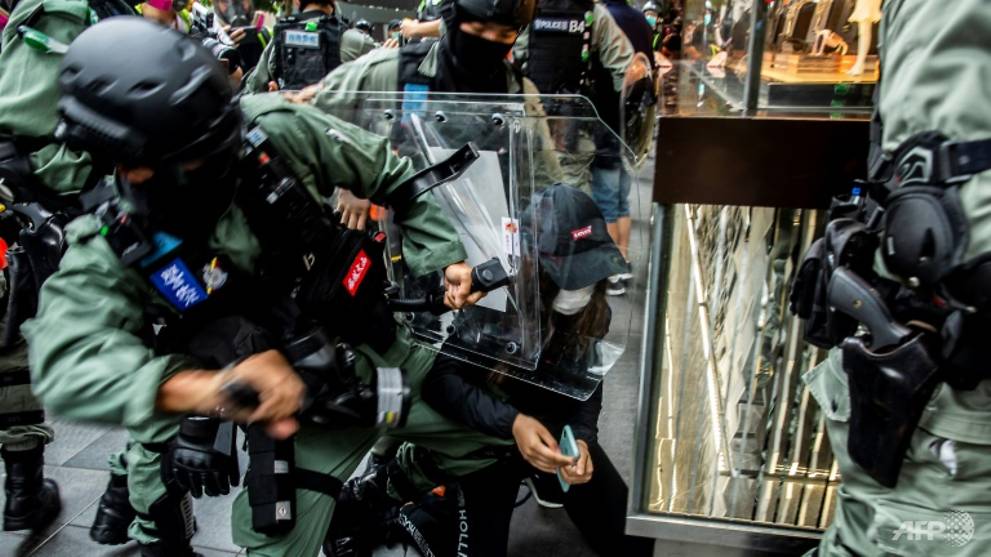
Proposed Chinese agency in Hong Kong for intel, not enforcement: Adviser
BEIJING: A proposed security law could allow Chinese mainland authorities to set up shop in Hong Kong, but their powers would likely be restricted to intelligence gathering and an advisory role, a member of China's top political advisory body said Wednesday (May 27).
China's rubber-stamp parliament is expected to approve on Thursday a proposal to draft a national security law for Hong Kong, which has sparked fresh protests over fears the financial hub will lose its unique freedoms.
Daniel Fung, Hong Kong member of the Chinese People's Political Consultative Conference, told AFP the idea is to establish a security agency similar to one that existed when the city was a British colony.
"I would expect the powers and duties of this agency to be restricted to intelligence gathering, and playing an advisory role," Fung said, while noting its exact functions will have to be set out under the legislation that will be passed at a later date.
READ: Hong Kong police fire pepper ball rounds at protesters, arrest 300 people
READ: Explainer: Hong Kong's China national anthem Bill aims to legislate 'respect'
Enforcement of laws, he added, should remain with the Hong Kong government under the proposal, which would ban secession, subversion, terrorism and foreign interference.
Hong Kong has its own legal system and a degree of autonomy through the "One Country, Two Systems" arrangement under which Britain handed Hong Kong back to China in 1997.
Under the city's mini-constitution, local police are responsible for law enforcement but mainland police officials are allowed to operate within the territory. Activists fear the new proposals will end this firewall.
Last year's mass unrest against the government was triggered by a now-scrapped proposal to allow extraditions to the mainland, which many worried would leave Hong Kong citizens at the mercy of China's opaque justice system.
READ: Security laws will not affect Hong Kong's rights and freedoms, says leader Carrie Lam
READ: China's Hong Kong law set to bar foreign judges from national security cases
Fung, however, said he did not see that happening under the new proposal.
"We do not expect the transfer of suspects to the mainland for trial," he said.
Mainland Chinese authorities could join Hong Kong police to investigate criminal suspects under the planned security law, pro-Beijing politician Maria Tam had earlier told AFP.
But according to Tam, who advises China's parliament on Hong Kong's constitution, police from outside the city would need approval from local authorities to conduct investigations.
The move has prompted US President Donald Trump to warn that Hong Kong might lose its status as a global financial centre if the city's freedoms and vaunted judicial independence are swept aside.
Hong Kong's unpopular chief executive, Carrie Lam, said Tuesday that essential freedoms would remain.
MORE: Our coverage of the Hong Kong protests
Follow us on Telegram for the latest on Hong Kong: https://cna.asia/telegram